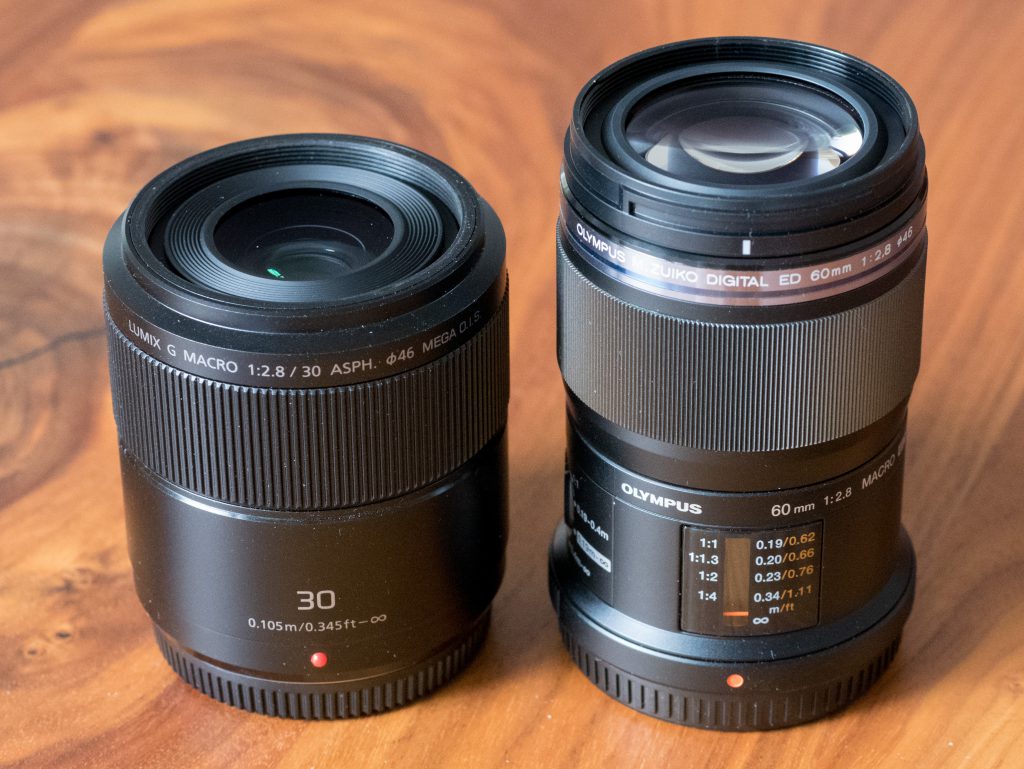An important feature of any macro lens is the distance it allows between its front lens and the photographed subject at full magnification. This distance is known as the working distance. If it’s too short, your lens may not only scare away your subject, but also cast a shadow on the scene.
The working distance of a lens dwork is determined by its minimum focus distance (MFD) between sensor and subject dmin, the flange focal distance of the camera between sensor and lens mount dflange, and the length of the lens barrel between lens mount and front lens dbarrel as
| dwork | = | dmin – dflange – dbarrel | (W1) |
Note that if your lens extends for macro photography, you will have to use its maximum length here. If you are using a lens extension tube or a teleconverter, you will have to subtract its length as well.
For example, consider the AF macro lenses available in the Micro Four Thirds system (all figures rounded to full mm):
| lens | MFD | flange focal distance | barrel length | working distance |
|---|---|---|---|---|
| dmin | dflange | dbarrel | dwork | |
| Olympus 30 mm f/3.5 Macro | 95 mm | 19 mm | 60 mm | 16 mm* |
| Olympus 30 mm f/3.5 Macro | 100 mm | 19 mm | 60 mm | 21 mm |
| Lumix 30 mm f/2.8 Macro | 105 mm | 19 mm | 64 mm | 22 mm |
| Leica 45 mm f/2.8 Macro | 150 mm | 19 mm | 63 mm | 68 mm |
| Olympus 60 mm f/2.8 Macro | 190 mm | 19 mm | 82 mm | 89 mm |
| OM System 90 mm f/3.5 Macro PRO | 224 mm | 19 mm | 136 mm | 69 mm** |
| OM System 90 mm f/3.5 Macro PRO | 250 mm | 19 mm | 136 mm | 95 mm |
All at 1× magnification, except * at 1.25× magnification and ** at 2× magnification

7.1 Focal length and working distance
Obviously, a longer focal length allows for a (much) longer working distance. So does a longer focal length make a better macro lens?
If you are after dragonflies in the wild or want to take photos of coins with natural light, it is certainly a good idea to use a longer focal length. Note that a telephoto lens with a lens extension tube may also work well for non-moving subjects.
On the other hand, if you want to take photos of the underside of mushrooms in their natural habitat or other things in tight spaces, a shorter focal length may be the only chance to get the image. So as with other photographic subjects, it depends on what you want to do.
